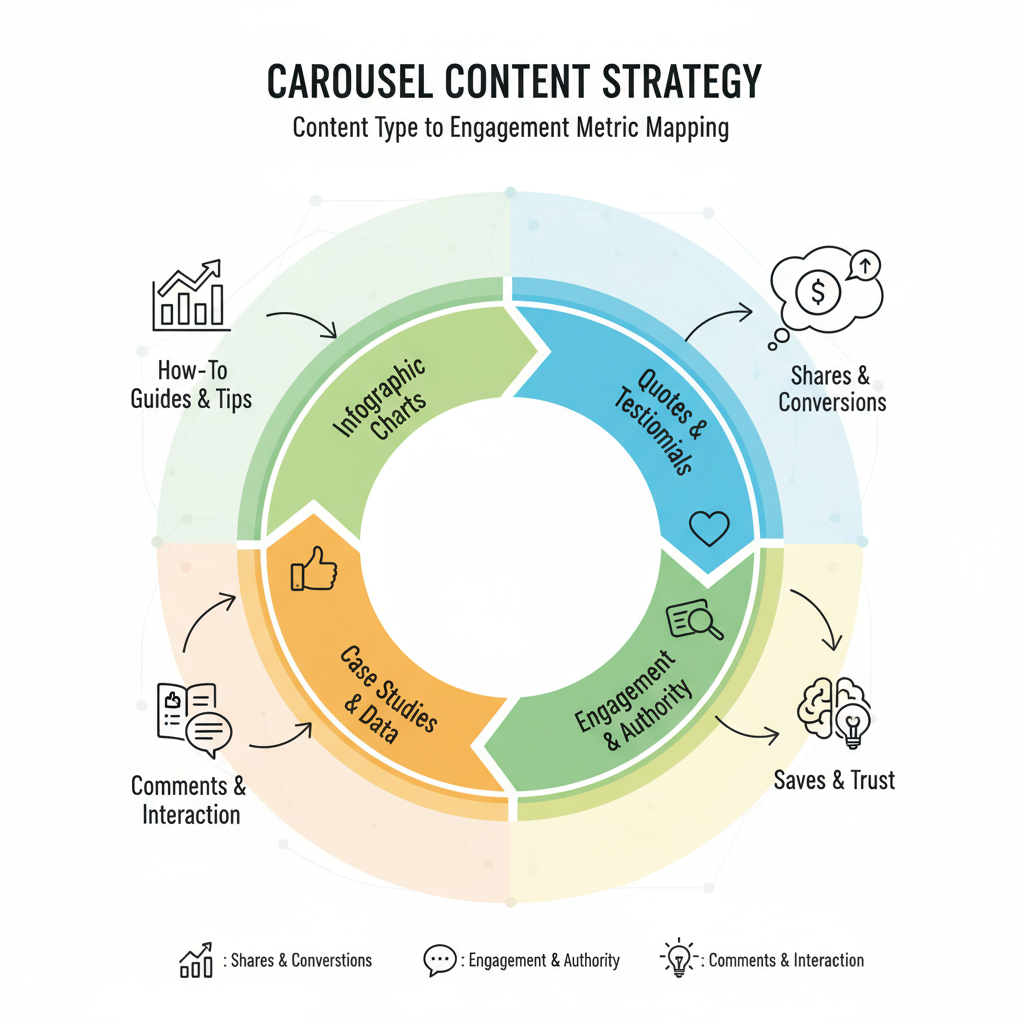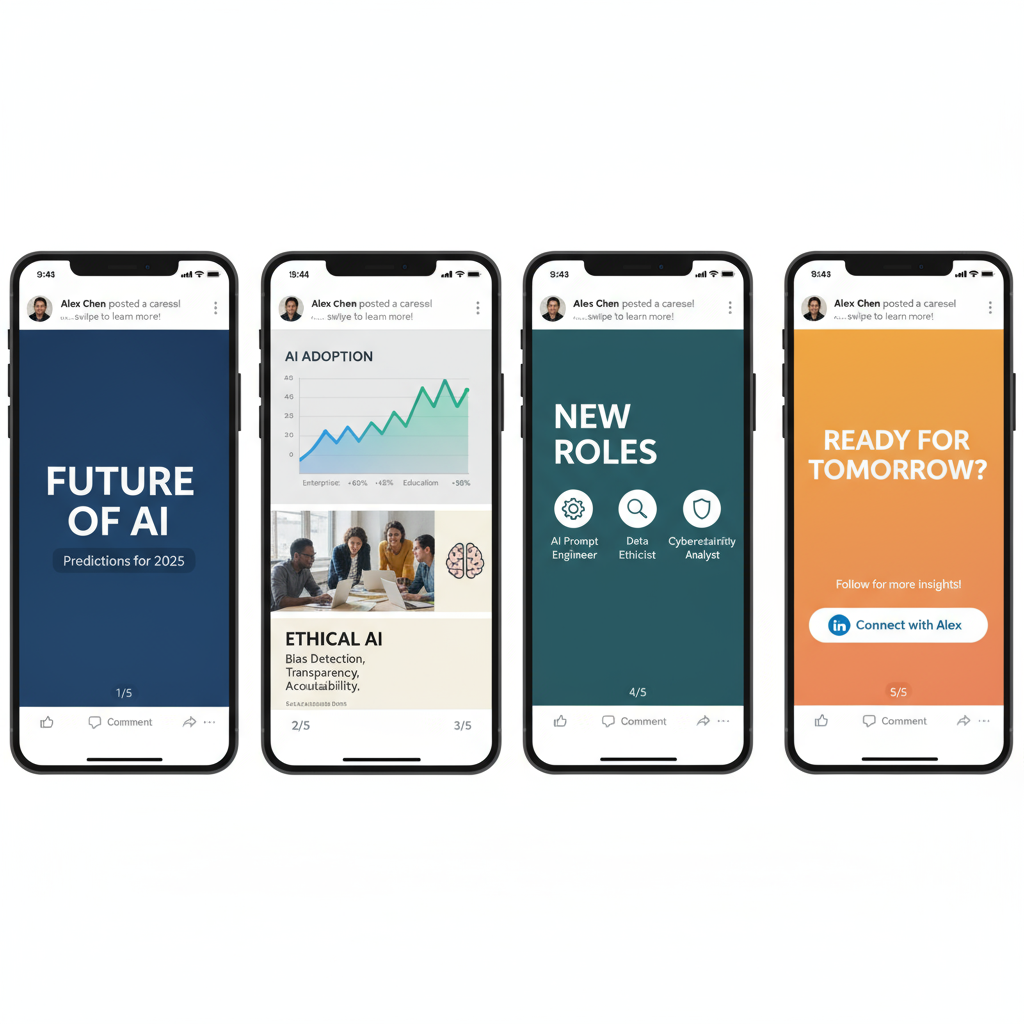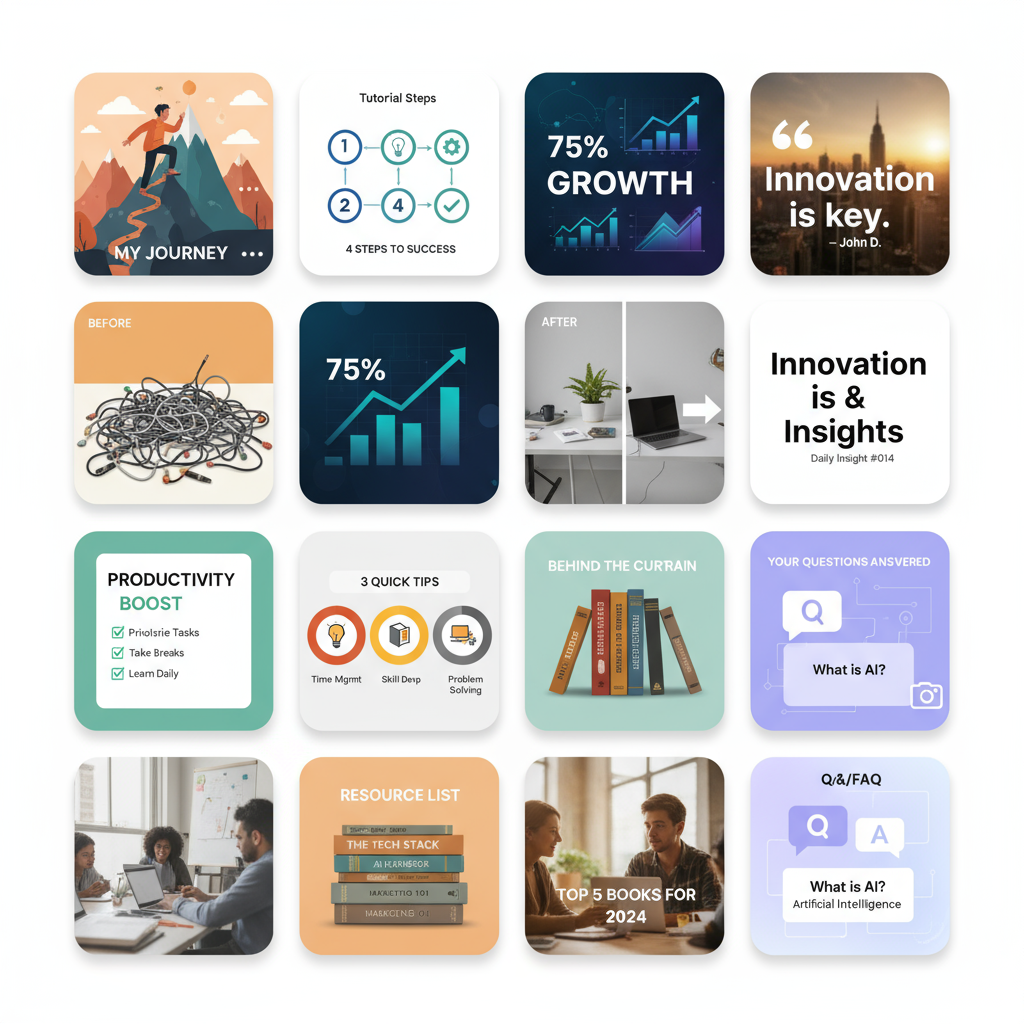10 Best LinkedIn Carousel Examples to Increase Engagement
Discover 10 inspiring LinkedIn carousel examples with tips on design, storytelling, and strategy to boost engagement and reach on your posts.

Introduction to LinkedIn Carousels for Maximum Engagement
LinkedIn carousels are one of the most effective LinkedIn engagement strategies available today. These multi-slide, swipeable posts allow you to convey ideas in a highly visual, interactive, and structured format—capturing attention far longer than a static text update.
Whether you’re aiming to boost brand visibility, share insights, educate your network, or tell a compelling story, carousels can help you break down complex information into easy, shareable slides. By encouraging viewers to swipe for more, they naturally increase dwell time on your content—positively affecting algorithmic reach.
In this guide, we explore 10 best LinkedIn carousel examples to inspire your next piece and share tips on how to design, publish, and optimize them for maximum impact.

---
1. Storytelling Format from a Personal Career Journey
Why it works: Human-centric stories evoke emotion and relatability. By showing your journey in chronological, swipeable slides, you create an emotional connection that resonates deeply.
Example use case:
- Slide 1: "How I went from Intern to Senior Manager in 5 Years"
- Middle slides: Key milestones, challenges, and lessons learned
- Final slide: Takeaways + CTA (“Share your career journey in the comments!”)
---
2. Educational Step-by-Step Tutorial Breakdown
Why it works: Tutorials offer actionable value, making them highly shareable among peers seeking guidance.
Example use case:
- Slide 1: Strong hook (“How to Build a Personal Brand in 7 Steps”)
- Slides 2–8: One step per slide, with visuals and examples
- Final slide: Checklist or download link
---
3. Data-Driven Insights with Chart Visuals
Numbers grab attention—particularly when they reveal unexpected trends. Data carousels perform strongly among professionals seeking evidence-based content.
Example use case:
- Slide 1: “2024 Marketing Trends Backed by Data”
- Slides 2–5: One key statistic per slide with brief analysis
- Final slide: Invite discussion in comments

---
4. Before-and-After Transformations in Project Work
The “then vs. now” structure is highly visual and instantly communicates measurable impact.
Example use case:
- Slide 1: “How We Increased Engagement by 300% in 3 Months”
- Slides 2–3: Project baseline and challenges
- Slides 4–5: Improved visuals, metrics, and transformation details
---
5. Industry Tips Condensed into a Quick-Swipe Guide
Why it works: Delivers quick wins in bite-sized form—perfect for busy professionals.
Example use case:
- Slide 1: “10 Copywriting Hacks for B2B LinkedIn Posts”
- Slides 2–10: One hack per slide with examples
- Final slide: Recap + prompt to save the post
---
6. Case Study Highlights with Key Takeaways
Spotlighting results from a project or partnership builds authority and trust.
Example use case:
- Slide 1: Case study headline
- Slides 2–4: Problem, approach, solution
- Final slide: Quantified results + link to full case study
---
7. Inspirational Quotes with Unique Brand Style
Professionals enjoy motivation, but design consistency ensures your quote series stands out in a crowded feed.
Example use case:
- Multiple slides: Industry-relevant quotes
- Cohesive design: Brand fonts, colors, and imagery
- CTA: Invite followers to share their favorite quote
---
8. Behind-the-Scenes Process Reveal
Sharing your process boosts transparency and builds a stronger relationship with followers.
Example use case:
- Slide 1: “How We Designed Our Latest Product in 30 Days”
- Slides 2–6: Photos, sketches, prototypes
- Final slide: Completed product reveal

---
9. Myth vs Fact Format to Debunk Misconceptions
This format combines education with curiosity—hooking viewers to swipe for the truth.
Example use case:
- Slide 1: Bold myth (“Myth: You Need Paid Ads to Grow on LinkedIn”)
- Slide 2: Fact with supporting details
- Repeat for multiple myths
---
10. Product or Feature Explainer Slides for B2B
Carousels help simplify technical or advanced offerings by breaking them into digestible points.
Example use case:
- Slide 1: “3 New Features to Improve Your Workflow”
- Slides 2–4: One feature per slide with annotated visuals
- Final slide: CTA to request a demo
---
Best Practices for Designing and Publishing LinkedIn Carousels
Follow these principles to maximize performance and engagement:
- Hook fast: Create a visually strong, curiosity-driven first slide.
- Limit copy: Keep to 20–40 words per slide for readability.
- On-brand visuals: Maintain consistent typography, colors, and graphic style.
- Swipe incentives: Use partial reveals, ellipses, or sequential layouts.
- Always close with a CTA: Drive comments, shares, or further actions.
---
Tools and Templates for Creating High-Performing Carousels
Use the right tool to match your skills and project requirements:
| Tool | Best For | Key Features |
|---|---|---|
| Canva | Non-designers | Drag-and-drop editor, templates, brand kits |
| Figma | Design teams | Collaborative editing, prototyping, reusable components |
| Adobe Illustrator | Advanced graphic design | Custom vector work, precise control, print/web export |
| Visme | Data visualization | Charts, infographics, analytics integrations |
---
How to Measure Performance and Optimize Future Posts
Monitor LinkedIn Analytics to ensure continuous improvement:
- Impressions: Indicates reach; track growth over time.
- Clicks: Reflects intrigue and perceived post value.
- Shares: Signals high perceived usefulness.
- Comments: Showcases engagement depth.
Optimization tips:
- Compare performance of different carousel types (tutorials, data, stories).
- Test first-slide headlines to improve click-through rate.
- Adjust posting schedule based on audience activity peaks.
---
Conclusion: Keep Innovating for Stronger LinkedIn Engagement
LinkedIn carousels merge visual appeal, structured storytelling, and deep engagement potential into a single format. By diversifying your styles across personal stories, stats, tips, and case studies, you can keep your content stream fresh while identifying what resonates most with your audience.
The key: experiment, measure, and refine. Your audience’s preferences will guide your creative direction over time. Start planning your next carousel today, put these ideas into action, and watch your LinkedIn engagement metrics climb.


